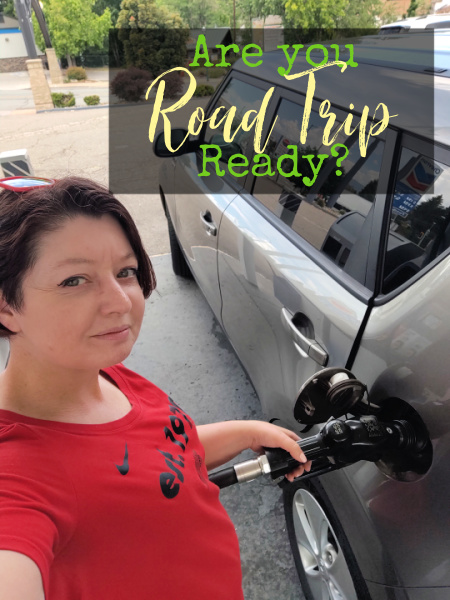Summer is right around the corner and for lots of us, that means road trips. We just got back from one. It was quick, but it was fun and we got in a lot of things we wanted to do. Many people will be hitting the road for the summer. If you are, too, then you want to be prepared. Don't forget the most important thing: If you aren't renting a car, then you need to get your own road trip ready.
Have you checked your car recently?
I love a good road trip, but it can be scary if you aren't ready for the weather conditions being thrown at you. Traveling through several state, or even just several terrains, can be vastly different. This is not the time to just "see how it goes". You need to prepare. Now, I know the very basic of car maintenance. I can check my oil and put air in my tires and I could probably put on a spare if I was strong enough. I can even jump a car if need be, but that's about it. It's always smart to go get your car checked out before your trip. A licensed professional can do this for you, but they can also show you how to check it yourself, so you know when to come in and get the replacement parts you need.
Is your car comfortable?
You may find your car fine for jaunts around town, but you'll be spending hours at a time in it and may end up finding that it's not the best for road trips. Several years ago, I got into an accident that totaled my car and I had to get a new (to me) one. When I test new cars, I always sit in the back seat to make sure there's enough leg room, even if I never sit back there. This is especially important if you travel as a family.
My new car is a Kia Soul, which gives us quite a bit more room to stretch out for long and short trips. It also gets a lot better gas mileage, so I can go farther on a tank of gas. That means road trips are more budget-friendly for me, in addition to being more comfortable.
Are your brakes good?
If it's taking a little more pressure than needed to stop your car or you hear some squealing when you slow down, those aren't good things. You don't want to find out your brakes are shot when you're in the middle of nowhere. Just because I read about how to slow down a car on the highway when your brakes fail, doesn't mean I want to have to use that information. Make sure you know when to get yours replaced.
Are your fluids topped off?
Don't forget to check important fluids, because there's nothing worse than ignoring crucial maintenance and then ending up either broken down, overheated or doing irreparable damage to something that then costs hundreds or thousands of dollars to replace, making your road trip totally not budget-friendly by the end. You can check all your car's fluids yourself, so you know what needs to be taken care of before you head out...and remember, keep a large bottle of water (a two-liter or gallon jug) in your trunk for emergencies.
Do you have an emergency kit?
- Flares -- Make sure you keep yourself and other drivers safe by alerting them to your situation.
- Hazard Triangle -- Let people know you're ahead, so they don't plow right into you.
- Jack -- because you aren't He-Man and need some help holding the car up to change a tire.
- Lug Wrench. I like this non-slip one, but if you're a wimp like me, this electric one is even better.
- Jumper cables -- Just because you can get a stranger to help you, doesn't mean they have the necessary equipment. Another good thing to jump yourself is a Halo Bolt, in case it's just you and you don't want to call AAA if you don't have to (see more info on that below).
- Flashlight -- You can't always see in the dark or find things easily in the trunk, even during the day. That fancy headlamp you have at home is perfect for this.
- Rags or Paper Towels -- It's just nice to not ruin your clothes, especially when you've packed light to save space. This is also where antibacterial wipes come in handy. You should have these in your Covid Safety Kit, because that's still a thing.
- Foam Tire Sealant or a Portable Compressor and Plug Kit, because nails and other sharp objects happen and these will at least get you to the next service station.
- Portable Battery Backup for your phone, because you aren't always near civilization when the least convenient things happen.
- Fire Extinguisher, because you hope there isn't a fire, but things don't always go the way you expect.
- A paper map is always a good idea when your phone can't get a GPS signal.
- Portable jumpstart battery, that can be used to charge devices. It also has a light on it. I have a Halo Bolt and it has saved me several times when my battery has died and I don't have anyone near me to help jump my car. You connect the clips, push a button, wait a bit and then start your car. It's also come in handy to charge my laptop and phone, but also to plug in a light when the power has gone out.







No comments:
Post a Comment